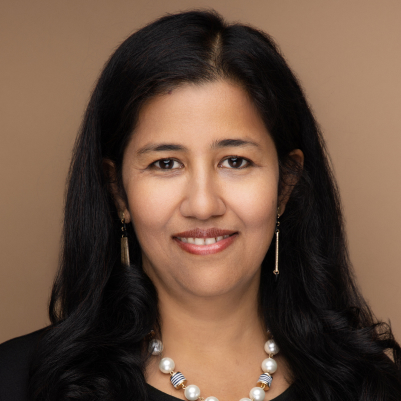Sleep apnea is the complete cessation of breathing during sleep. Many Americans are suffering everyday from undiagnosed sleep apnea. There are 3 different kinds of sleep apnea – obstructive sleep apnea, central sleep apnea and combination of both. The most common is obstructive sleep apnea.
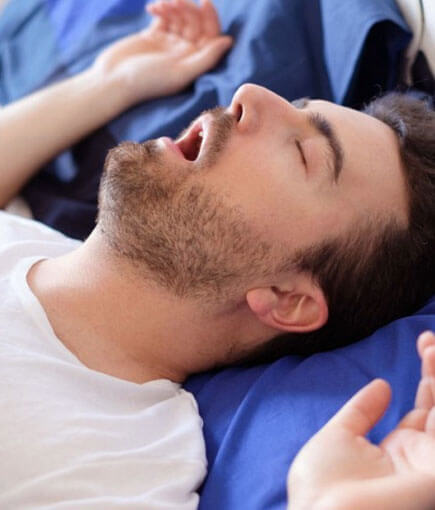
Obstructive sleep apnea
In obstructive sleep apnea, the airway is partially or completely blocked. As a result, when apnea happens, the body struggles to breathe putting a lot of stress on chest and diaphragm muscles to open up the airway and help the person breathe.
During this time, the oxygen level goes down in the body, the heart works extra hard to pump more blood to the organs and this causes a lot of stress on the body and different organs. This in turn reduces sound sleep, messes up the flow of oxygen to different organs and causes long term cardiac problems.
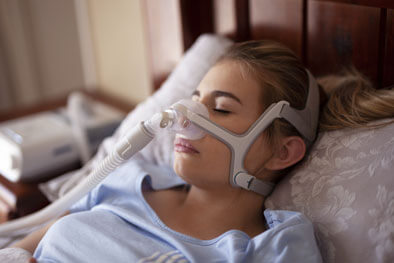
Central sleep apnea
Obstructive sleep apnea can be treated by an oral appliance
- Snoring
- Day time sleepiness or fatigue
- Frequent urination during night (nocturia)
- Restlessness during sleep
- Sudden awakening with sensation of gasping or choking
- Dry mouth, sore throat, cotton mouth on awakening
- Depression, mood changes, irritability, intellectual impairment like concentration issues, forgetfulness, brain fog
- Morning headaches, migraines
- High blood pressure, cardiovascular disorder.
- Sexual dysfunction
- Excessive sweating
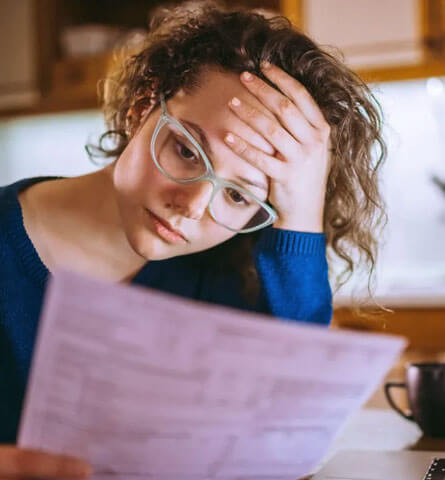
Untreated obstructive sleep apnea
Untreated obstructive sleep apnea is very dangerous and can result in number of health problems like
- Hypertension
- Stroke
- Cardiac problems like cardiomyopathy, congestive heart failure, heart attacks
- Concentration issues like sleeping during driving, work impairment etc.
How can a dentist treat sleep apnea?
Sleep apnea is well recognized in the medical field though awareness is far less in the dental field. At Dr. Jay Dental, we are treating obstructive sleep apnea with oral appliances. Every patient at Dr. Jay Dental is routinely screened during the exam and cleaning visits.
There are number of clinical signs during an oral exam that can let a patient know that there is a possibility of sleep disordered breathing. Some of the oral clinical signs are
- Enlarged tongue
- Scalloping of the sides/lateral parts of the tongue
- Bruxism/ night grinding of teeth
- Mandibular or maxillary torus of the jaws (extra bone developed in the jaws)
- Flat, worn or chipped tooth
- Broken dental work like broken fillings, crowns etc.
- Abfractions or chipping of the enamel near the gums
- Large tonsils
- Crowding of teeth etc.
Once Dr. Jay recognizes the oral signs including checking the contour of the palate, anatomy of the tongue and general size of the upper airway, she recommends a HST. We have made it easy for the patient.
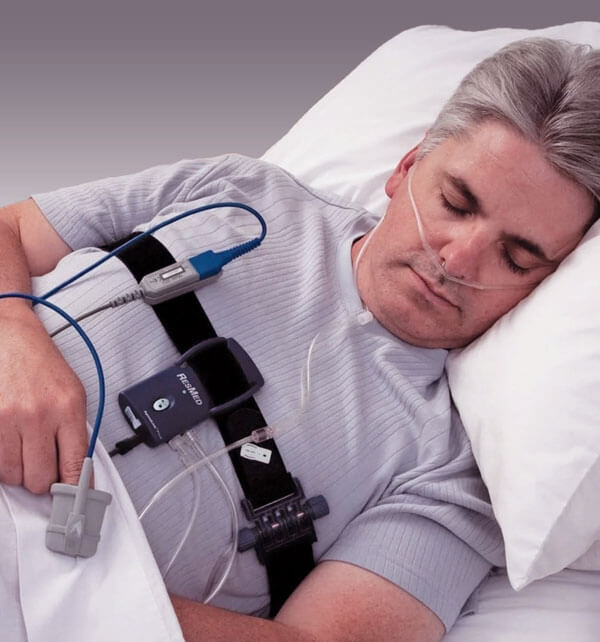
HST (Home sleep study test)
The best part about the HST is we have one in office available for our patients. Patients take it home, sleep in their own bed in the same environment as every other day wearing the HST and bring it back the next day. Our staff sends the data collected from the HST to a board-certified sleep physician. The sleep physician can diagnose from the raw data whether the patient has sleep apnea. Once patient is diagnosed, depending upon the severity, patient is recommended cpap or an oral appliance.
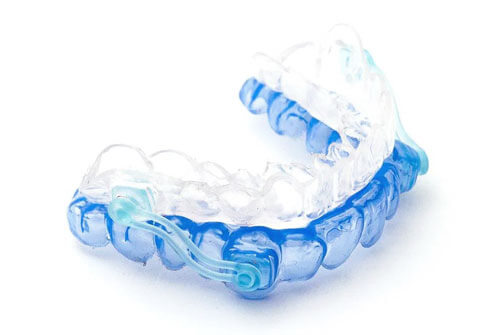
Oral Appliance for sleep apnea
If a patient is interested in oral appliance, we do intraoral scanning of the patient’s teeth, along with CBCT (3D imaging), records collection of intraoral signs and all medical conditions. We then send the scans to a FDA approved sleep lab. Our appliances are milled in the state of art technology lab and is very comfortable for the patient.The best part of the appliance is
- It is almost the size of a nightguard
- Does not have any hoses or pipes attached to it
- Very precise with flexibility and comfort, giving a lot of room for tongue space
- Travel friendly and can be taken in a small case inside your pant pocket or purse
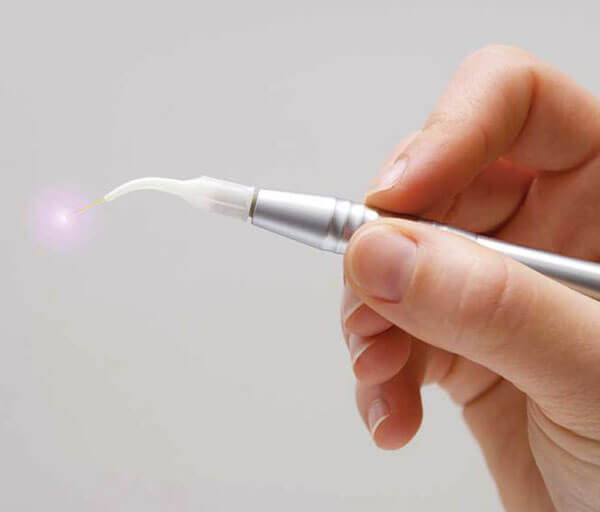
We also offer Nightlase treatment for our snoring patients as an adjunct to oral appliance. We have state of the art Fotona laser (which is a Erbium/ NDyag laser) which is used to stimulate collagen formation in the soft palate. This helps to open the airway and is usually 20 to 30 mins session. It is non invasive, comfortable and convenient for the patient. Feel free to check our website for Nightlase therapy under laser dentistry.
Please call our office if you have any questions about sleep apnea.


